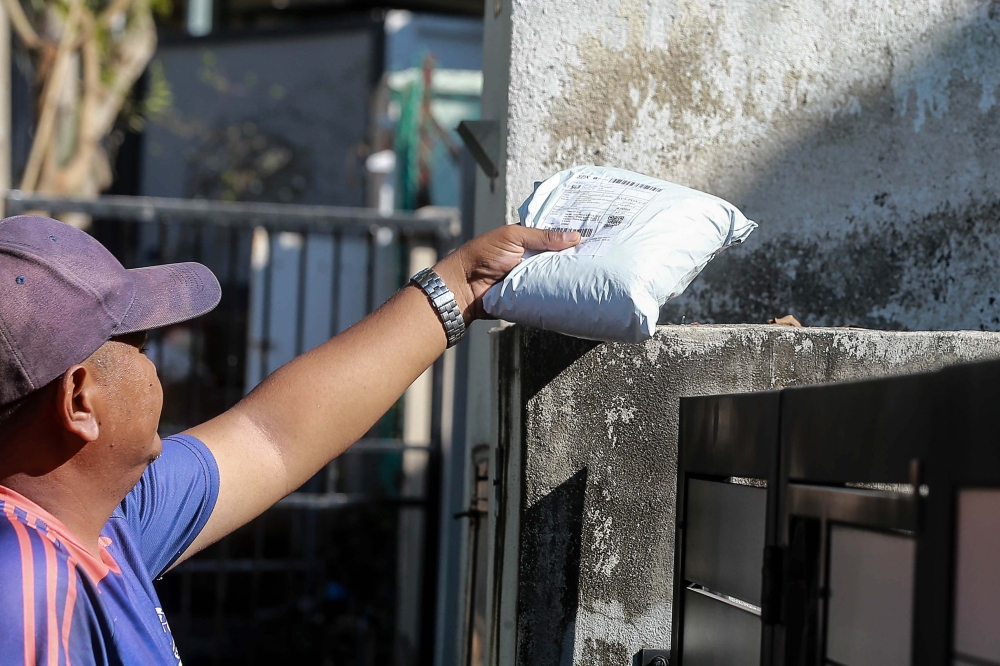KUALA LUMPUR, Sept 2 — The Ministry of Human Resources (Kesuma) on August 25 tabled the Gig Workers Bill 2025, which it described as a major milestone in the bid to regulate gig work and protect millions of workers.
The Bill, which was passed on August 28, came after years of protests over what workers alleged to be exploitative practices by internet-based companies, fuelling demand for safeguards in a multi-billion-ringgit industry that largely operates outside laws governing formal employment.
About 1.2 million Malaysians currently earn through gig work, with e-hailing emerging as the most prominent sector, according to Kesuma data.

About 1.2 million Malaysians currently earn through gig work, with e-hailing emerging as the most prominent sector, according to Kesuma data. — Picture by Yusof Mat Isa
What is the Gig Workers Bill 2025?
The ministry said the Gig Workers Bill 2025 provides a clear legal framework to protect the rights and welfare of gig economy workers, starting with a clearer and broader definition of what constitutes gig work and which types of workers are protected under this law.
Who qualifies as a gig worker under the new law?
Any individual who:
1. Has entered into a service agreement with an entity or platform provider
2. Performs services for a platform provider or earns income through the following activities:
- Acting or singing
- Film production crew work
- Lyric writing or music composition
- Make-up artistry
- Hairdressing or styling
- Freelance journalism
- Care services
- Videography
- Photography

Human Resources Minister Steven Sim (left) speaks at a press conference on the Gig Workers Bill 2025 at the Parliament Media Centre August 25, 2025. — Bernama pic
Why is the Bill important?
This Bill is considered a significant step because it seeks to address several key issues faced by gig workers.
This includes the lack of legal recognition — gig workers do not have a clear legal definition, making it difficult to seek legal recourse in disputes — as well as the absence of social protection.
The new law makes social security contributions — such as those to Perkeso and EPF — mandatory for service providers, giving gig workers a safety net they previously lacked.
The law also establishes a formal dispute resolution mechanism, including a Gig Workers Tribunal, to handle complaints in a structured and transparent way.

A delivery driver from a local courier service delivers a parcel to its recipient in Sungai Buloh, June 12, 2025. — Picture by Sayuti Zainudin
When can gig workers escalate complaints for mediation?
Under the Bill, gig workers may seek mediation in cases involving:
1. Issues with individuals or sole proprietors who engage them
- Decisions by a platform provider that affect them, such as:
- Deactivation of their access
2. Alleged misconduct
3. Absence of an internal grievance mechanism by the contracting entity
4. Dissatisfaction with the outcome of an internal grievance process, if one exists
The Bill also addresses income protection by seeking to regulate payment terms that would require companies to clearly define how they will remunerate those they hire.
The Bill would also prohibit arbitrary deductions.

Suhakam raised concerns about privacy and data protection — the Bill does not explicitly protect a gig worker’s right to privacy and does not prevent the misuse of personal data in rating or scoring systems by platform providers. — Picture by Choo Choy May
What are the weaknesses of the Bill?
The Human Rights Commission of Malaysia (Suhakam), for one, said the Bill is still missing provisions for wage guarantees, timelines for payment and transparency in deductions.
The law prohibits arbitrary deductions, but allows exceptions for overpayments and other legally authorised cases — a provision critics say lacks clarity and may be open to misuse.
Suhakam had also raised concerns about privacy and data protection — the Bill does not explicitly protect a gig worker’s right to privacy and does not prevent the misuse of personal data in rating or scoring systems by platform providers.
It also argued that legal aid and collective bargaining rights are indispensable for ensuring fairness in the gig economy.
Various groups, including e-hailing and p-hailing workers, have called for the Bill to be reviewed by a Parliamentary Select Committee and not rushed through Parliament.





